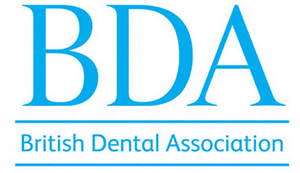- Home
- About us
- Find a practice
Practices in East Sussex
Practices in South West
Practices in Norfolk
Practices in Portsmouth
- Advanced Services
- Treatments
- Our Fees
- Reviews
- Contact
- Home
- About us
- Find a practice
Practices in East Sussex
Practices in South West
Practices in Norfolk
Practices in Portsmouth
- Advanced Services
- Treatments
- Our Fees
- Reviews
- Contact
Request an appointment
For dental appointments, please fill in the form below and we will call you back or email you to confirm your appointment.
Root canal treatment
What is root canal treatment?
Root canal treatment (also called endodontics) is needed when the blood or nerve supply of the tooth (known as the pulp) is infected through decay or injury. You may not feel any pain in the early stages of the infection. In some cases, your tooth could darken in colour, which may mean that the nerve of the tooth has died (or is dying). This would need root canal treatment.
Why is root canal treatment needed?
If the pulp becomes infected, the infection may spread through the root canal system of the tooth. This may eventually lead to an abscess. An abscess is an inflamed area in which pus collects and can cause swelling of the tissues around the tooth. The symptoms of an abscess can range from a dull ache to severe pain and the tooth may be tender when you bite. If root canal treatment is not carried out, the infection will spread and the tooth may need to be taken out.
Does it hurt?
No. Usually, a local anaesthetic is used and it should feel no different to having an ordinary filling done. There may be some tenderness afterwards but this should gradually get less over time.
What does it involve?
The aim of the treatment is to remove all infection from the root canal. The root is then cleaned and filled to prevent any further infection.
Root canal treatment is a skilled and time-consuming procedure. Most courses of treatment will involve two or more visits to your dentist.
At the first appointment, the infected pulp is removed, and any abscesses can be drained. The root canal is then cleaned and shaped ready for the filling. A temporary filling is put in and the tooth is left to settle.
The tooth is checked at a later visit and when all the infection has cleared, the tooth is permanently filled.
You breathe in the mixture through a nosepiece, which is very comfortable. You can’t overdose on the gas, as the mixture quickly leaves the body if you breathe in one or two breaths of ordinary air. There are no after-effects either, and you can drive a car after about 15 minutes. Many dentists use this safe and effective technique.
What will my tooth look like after treatment?
In the past, a root-filled tooth would often darken after treatment. However, with modern techniques this does not usually happen. If there is any discolouration, there are several treatments available to restore the natural appearance.
If you are a mother, you may have learned some relaxation techniques in childbirth classes. In fact, almost anyone can learn them. You can practise at home. Some people find that meditation and yoga work well, too.
What if it happens again?
Root canal treatment is usually very successful. However, if the infection comes back, the treatment can sometimes be repeated.
What if I don’t have the treatment?
The alternative is to have the tooth out. Once the pulp is destroyed it can’t heal, and it is not recommended to leave an infected tooth in the mouth.
Although some people would prefer to have the tooth out, it is usually best to keep as many natural teeth as possible.
Will the tooth be safe after treatment?
Yes. However, as a dead tooth is more brittle, it may be necessary to restore the tooth with a crown to provide extra support and strength to the tooth.
Where can this treatment be carried out?
Root canal treatment is a routine dental procedure, which your dentist will be happy to do for you. However, sometimes your dentist may refer you to an endodontist, who is a specialist in this type of treatment.
What about aftercare?
Root-treated teeth should be treated just the same as any other tooth. Remember to clean your teeth for two minutes, twice a day with a fluoride toothpaste. Cut down on sugary foods and drinks, and keep them only to mealtimes if possible. See your dentist as often as they recommend for regular check-ups.
Source: British Dental Health Foundation
Book an appointment at Dentistry For You
To start your journey to a new smile book an appointment with us today.
Why Dentistry For You?
- Established over 35 Years
- NHS & private dental care
- High quality treatments provided by experienced dentists
- In house quality assurance programme
- Over 2700 patient reviews across all locations
- All our practices are wheelchair friendly
Patient satisfaction is very important to us





